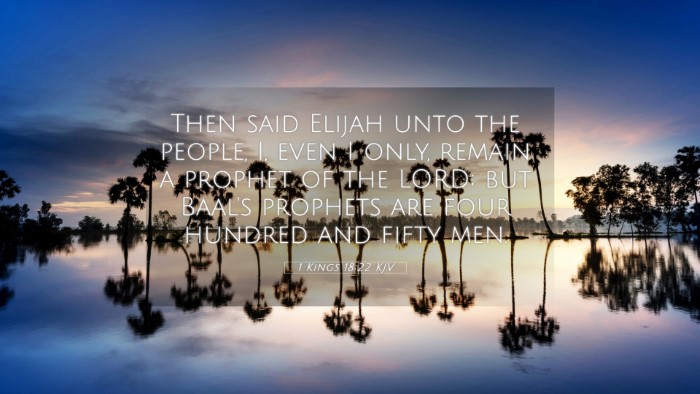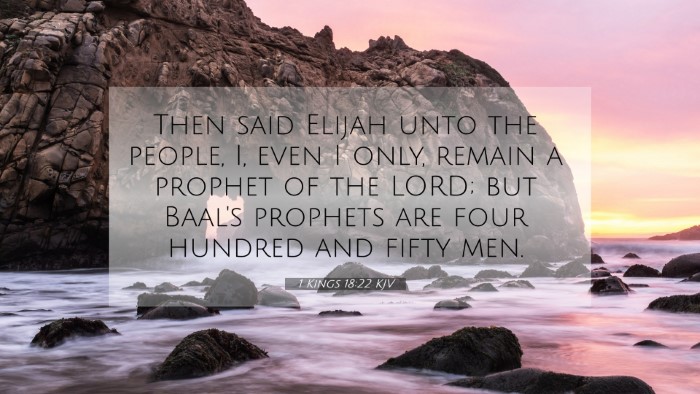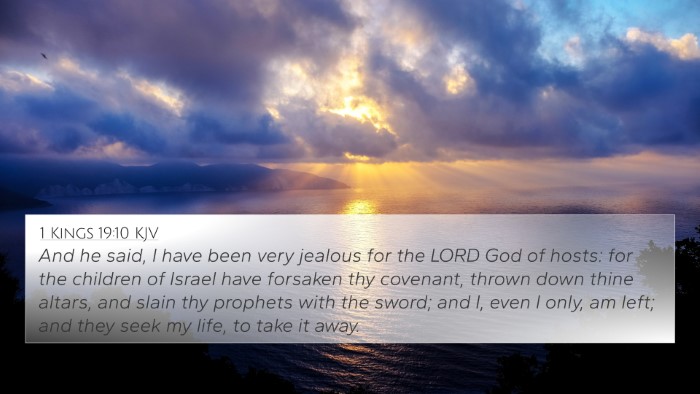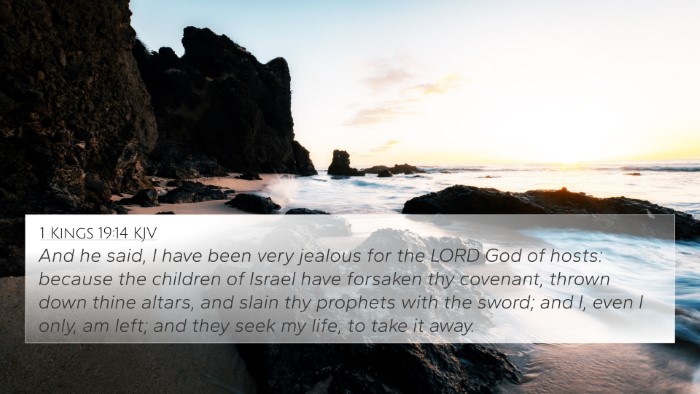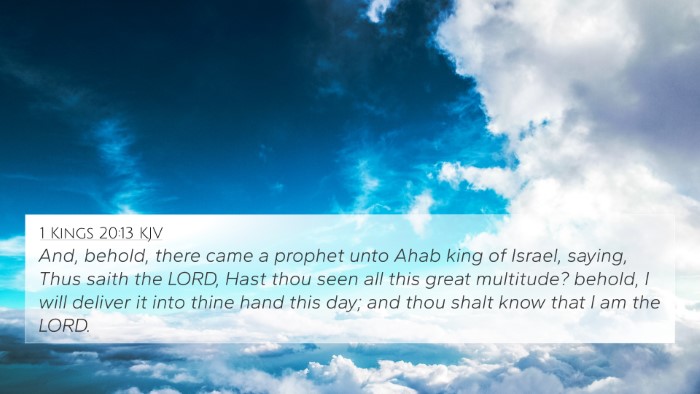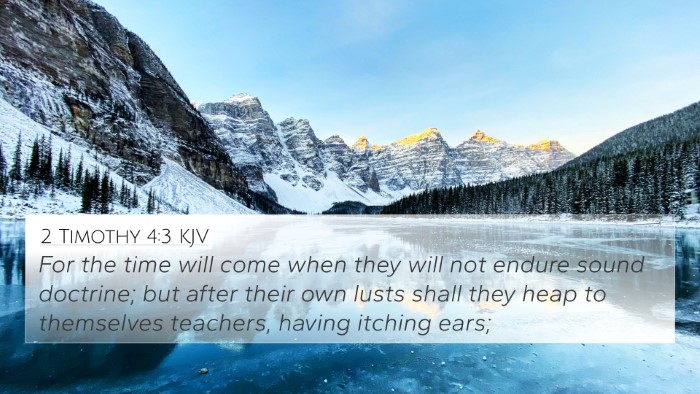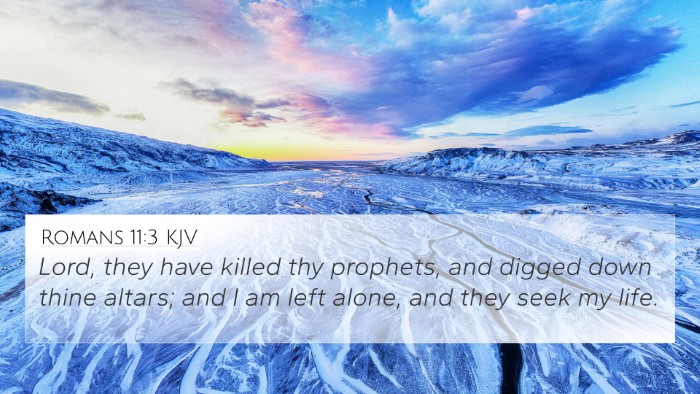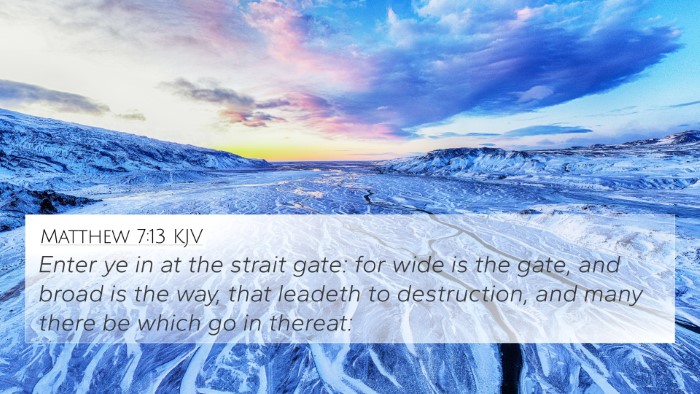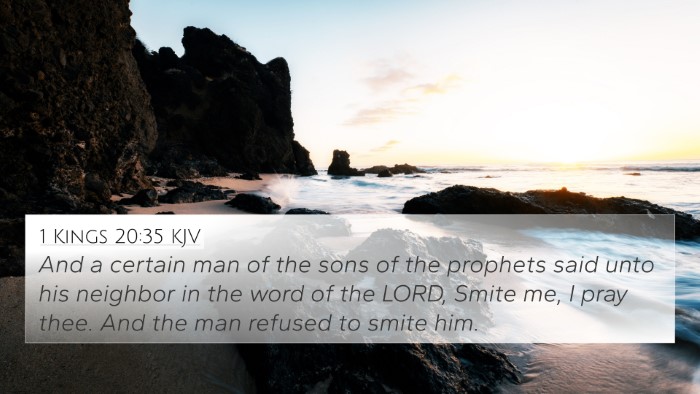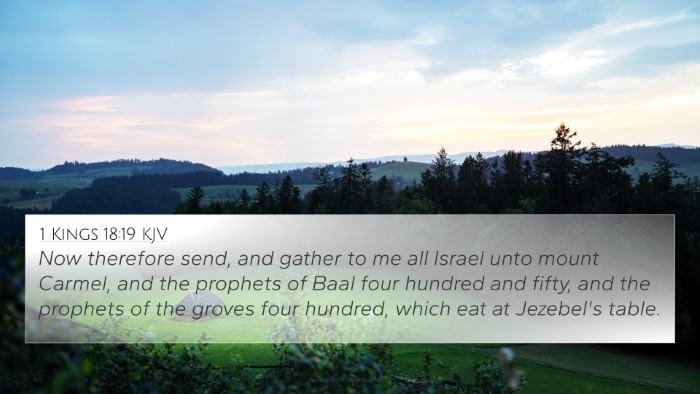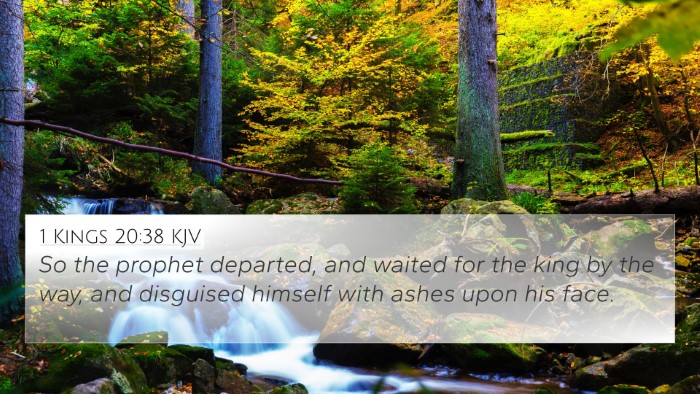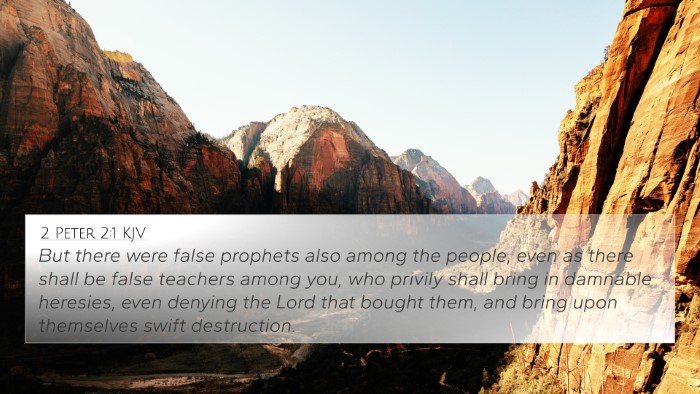Understanding 1 Kings 18:22
Verse: "Then Elijah said to the people, 'I, even I only, am left a prophet of the Lord; but Baal's prophets are four hundred and fifty men.'" (1 Kings 18:22)
Summary and Insights
This verse captures a pivotal moment in the prophet Elijah's confrontation with the prophets of Baal on Mount Carmel. It sets the stage for a dramatic challenge where Elijah stands alone in his commitment to the worship of Yahweh, contrasting sharply with the multitude of Baal's prophets.
Contextual Analysis
Elijah's declaration indicates not only his isolation as a prophet but also highlights the severe spiritual decline in Israel, where the worship of the true God has been overshadowed by the cult of Baal. This confrontation is significant as it reflects the theme of fidelity to God amidst apostasy.
Theological Implications
Elijah's statement serves as a testament to divine sovereignty. Despite being outnumbered, Elijah's lone voice represents the remnant of faithful believers. This theme resonates throughout Scripture, emphasizing that God's truth often stands in opposition to popular opinion or majority rule.
Commentary Insights
Matthew Henry's Commentary
Matthew Henry notes that Elijah's assertion of being the only prophet reflects the desolate state of true worship in Israel. He emphasizes the courage required to address the people despite his isolation and the moral decline represented by the prophets of Baal.
Albert Barnes' Commentary
Albert Barnes highlights the precarious situation of Elijah. The phrase "I, even I only, am left" demonstrates the depths of Israel's apostasy and the difficulties faced by those who remain faithful to God's covenants. Barnes draws attention to the contrast between the single prophet and the numerous false prophets, suggesting that the power of God does not rely on numbers.
Adam Clarke's Commentary
Adam Clarke focuses on the historical context, explaining how King Ahab's reign brought the worship of Baal to prominence. Clarke elaborates on the significance of Elijah taking a stand against the collective might of the prophets of Baal, showcasing the theme of true worship versus false worship.
Cross-References
This verse is interconnected with several other biblical texts that illuminate its meaning and significance:
- Romans 11:3-4 - Paul references Elijah's experience of feeling alone among those who did not worship God.
- 1 Kings 18:21 - The challenge Elijah presents to the people of Israel, urging them to choose between God and Baal.
- Exodus 20:3 - The first commandment establishing the exclusivity of worship to Yahweh.
- Matthew 7:13-14 - The biblical theme of the narrow path versus the wide path, reflecting Elijah's situation.
- 1 Kings 19:10 - Further elaboration on Elijah's feelings of loneliness and despair.
- Jeremiah 15:16 - A connection to the prophet Jeremiah, reflecting the struggle and isolation felt by God's prophets throughout history.
- 1 Peter 5:8 - The concept of spiritual vigilance amidst deception and idolatry.
Thematic Connections
The themes observed in this verse echo throughout other scriptural narratives, reinforcing the struggles faced by God’s messengers against societal pressures and false teachings.
Prayer and Consideration
In reflecting on 1 Kings 18:22, one may contemplate the courage and faith required to stand firm in one's beliefs, even when they seem in opposition to the majority. It calls for introspection regarding our relationship with God amidst a world that often encourages compromise.
Conclusion: The verse serves as a powerful reminder of God's sovereignty, the role of the faithful remnant, and the spiritual battles that persist throughout biblical history. As believers today, we can draw strength from Elijah's example, understanding that faithfulness to God sometimes means standing alone.

